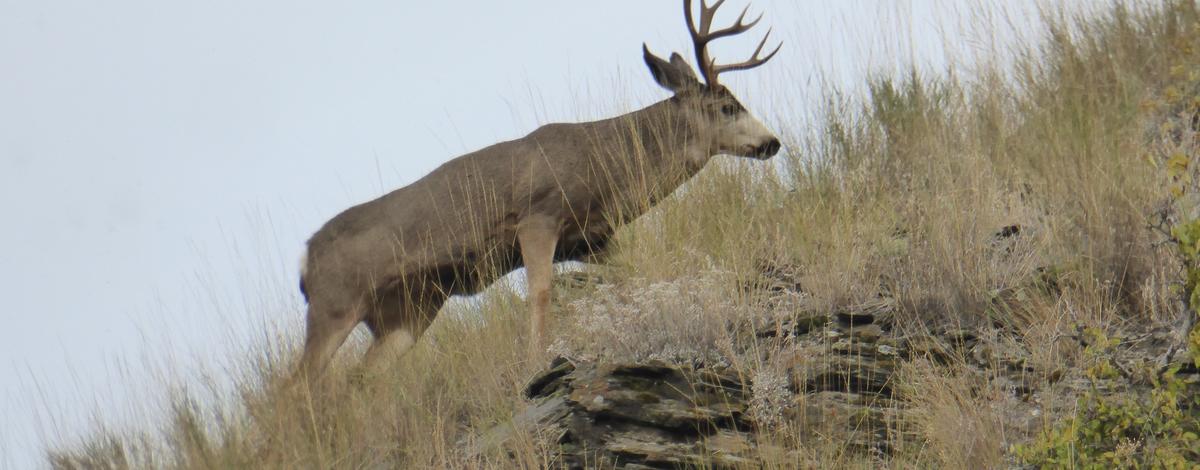Now that the second year of the Chronic Wasting Disease (CWD) management action has concluded, Idaho Fish and Game would like to take this opportunity to share the results. The three-week CWD management action took place from February 5th through February 23rd within the Slate Creek “hot spot” area, which consists of portions of the McKinzie Creek, Slate Creek, and John Day Creek drainages and some parcels across the river in unit 18 (see map below).

Spring 2024 CWD Management Action Wrap-up
Results of Slate Creek area management action includes 16 CWD positive animals

Since CWD was initially detected in the Slate Creek Area in 2021, our CWD management objective continues to be to minimize the spread of CWD outside of the “hot spot” and minimize the portion of animals that have CWD within Unit 14, and across Idaho.
The elimination of CWD within a landscape and deer population to date has been unachievable across the US. However, through adaptive management the CWD severity within a population (prevalence) and potential of spread to other areas can be minimized. To accomplish this, the Fish and Game lethally removed deer (and 2 sick elk) to reduce the deer density inside of the Slate Creek. The management action occurred on public lands and only on private properties where permission was allowed.
Results from the management include:
Total Management Action Removals:
- White-tailed deer: 83
- Mule deer: 72
- Elk: 2
- Total: 157
CWD Detections:
- CWD Negative: 140 (90%)
- CWD Positive: 16 (10%)
- 12 White-tailed deer
- 3 Mule deer
- 1 Elk
Approximately 8,000 lbs. of game meat from animals that tested negative for CWD will be donated to churches, food pantries, and community action centers for distribution.

Managing CWD in Idaho will be an ongoing process for years to come. Once on the landscape, CWD does not go away and all animals infected with the disease will die. We plan to monitor and evaluate samples from the upcoming hunting season, road kills, and reported sick deer and continue to adapt our CWD management actions appropriately as we obtain more data and information. Fish and Game staff still have a lot of challenging work to do and tough calls to make to effectively manage CWD. Thank you for your continued support as the department works closely together in the future to combat this fatal wildlife disease.
Please contact the regional office (208) 799-5010 with questions or to further familiarize yourself with the symptoms and dangers of chronic wasting disease, visit: idfg.idaho.gov/cwd.
